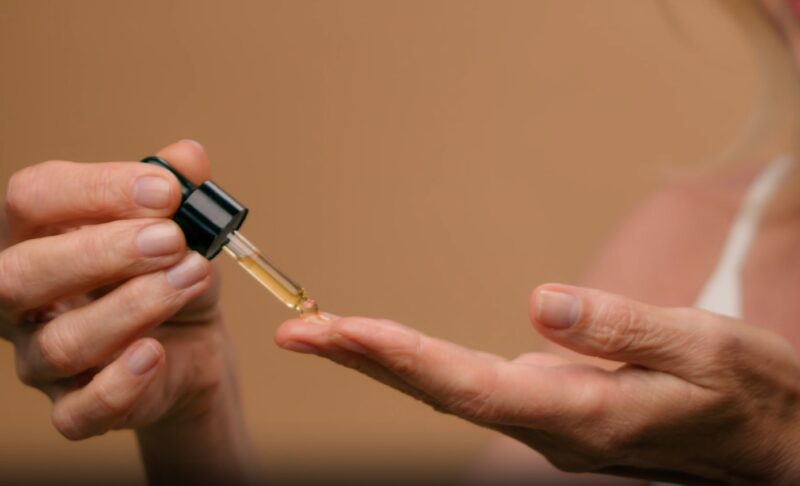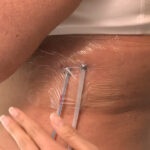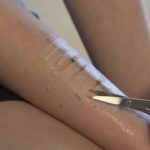Bumps, scrapes and cuts happen every day – it’s a fact of life. For really deep, serious wounds you’ll want to head immediately to your doctor or emergency room first. If you need stitches, they’re best equipped to do that. But in the case of minor wounds, essential oils are a popular way to enhance healing.
Key Takeaway
- Essential oils can be used as a supplementary method for the healing of minor wounds, but should not replace professional medical treatment.
- Each essential oil, like Myrrh, Tea Tree, and Lavender, has unique properties such as anti-inflammatory, antimicrobial, and soothing effects beneficial for wound care.
- Dilution of essential oils with a carrier oil is crucial for safe application, and certain oils should be avoided on open wounds due to potential irritation.
- Some essential oils, particularly Lavender and Frankincense, are known for their ability to speed up healing and reduce the appearance of scars.
- Pregnant women and individuals with specific health conditions should consult healthcare professionals before using essential oils for wound care.
Overview

These are simply highly concentrated oils extracted from different species of plants, often used as a home remedy because they can help support skin health. Healthline says that essential oils benefits include balancing skin tone, reducing redness and inflammation, healing wounds and preventing scar tissue from forming.
Add to that slowing down bleeding, wound disinfection and lessening pain or stinging, according to Essential Oil Haven. In fact, essential oils contain the “immune system of the plant,” so when they’re properly extracted and distilled, they possess therapeutic and medicinal properties.
Steps to Follow when Using Essential Oils for Wounds
The first thing to do is rinse with clean water or a mild saline solution, using a cloth or sterile gauze pad to remove any dirt or debris. Apply mild pressure to stop the bleeding, which usually tapers off in a short while.
After the wound is clean, here are seven essential oils you can choose from for treating the wound.
Myrrh Essential Oil
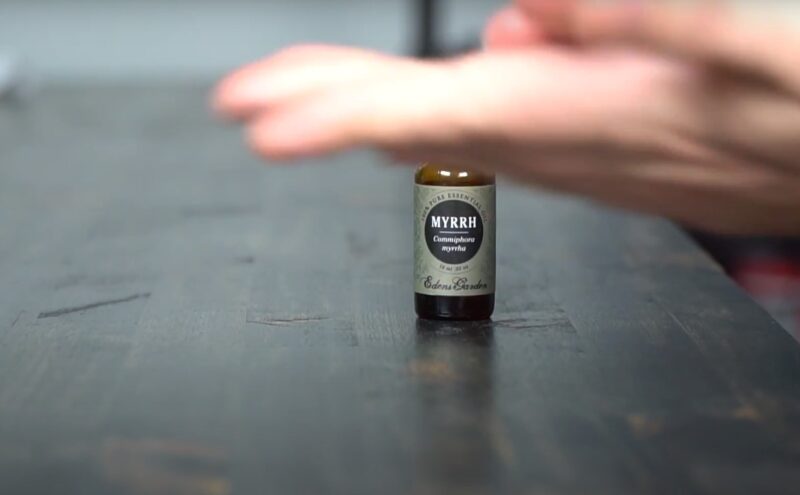
- Properties: Myrrh is known for its powerful disinfecting and hemostatic (bleeding-stopping) properties. Derived from tree resin, it has a thick consistency and a unique scent.
- Use: Ideal for cleaning and protecting wounds. Its thick nature allows it to form a protective layer over the wound.
- Mixing: If you find the scent strong, blend it with lavender, lemon, or peppermint oil for additional benefits and a more pleasant aroma.
Tea Tree Oil
- Properties: Famous for its antiseptic, antimicrobial, and anti-fungal qualities, tea tree oil is excellent for reducing the risk of infection and combating bacteria.
- Use: It’s particularly effective in soothing itchiness, burning sensations, and redness associated with wounds and scars.
- Application: Apply diluted tea tree oil to the wound to prevent irritation, as it can be quite potent in its undiluted form.
Lavender Essential Oil
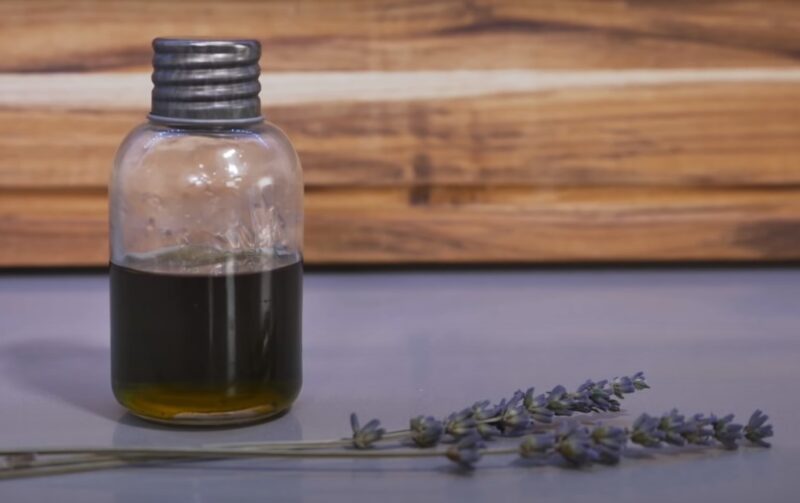
- Properties: Lavender oil is a versatile oil, known for its disinfecting ability as well as its calming effects.
- Use: It’s gentle yet effective for all types of wounds, reducing stinging, pain, and itching – making it a good choice for children and insect bites.
- Benefits: It speeds up the healing process and reduces scarring.
Helichrysum
- Properties: Excellent for bruises and swelling, helichrysum oil is known for its anti-inflammatory properties.
- Use: Particularly useful for wounds with underlying bruising and swelling, such as scrapes or cuts from falls.
- Application: Apply gently around the affected area to reduce swelling and aid in the healing of bruises.
Frankincense
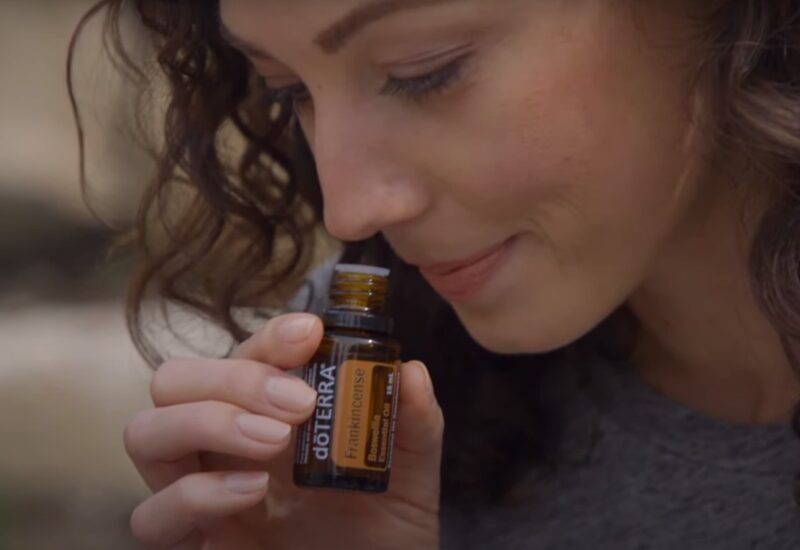
- Properties: Renowned for its skin rejuvenation qualities, frankincense is great for healing and repairing damaged skin.
- Use: Useful for older wounds or scars, where skin regeneration is a priority.
- Benefits: Helps in reducing the appearance of scars and promotes the growth of new, healthy skin.
Rosemary
- Properties: Known for its antibacterial and anti-inflammatory properties, rosemary oil is great for cuts and scrapes.
- Use: It helps in preventing infection, reducing swelling, and improving blood circulation around the wound.
- Application: Can be mixed with a carrier oil and applied around the wound area for better absorption and efficacy.
Chamomile

- Properties: Chamomile is known for its soothing and calming properties, both for the skin and the mind.
- Use: Ideal for wound care, especially in soothing the skin after an injury. It’s also beneficial in calming the nerves, which can be particularly helpful for children.
- Benefits: It aids in reducing inflammation and soothing irritated skin, making the healing process more comfortable.
FAQ
Can essential oils replace professional medical treatment for wounds?
No, essential oils should not replace professional medical treatment, especially for deep or severe wounds. They can be used as a complementary approach for minor wounds after consulting with a healthcare professional.
How do you dilute essential oils for wound care?
Essential oils should be diluted with a carrier oil, such as coconut or olive oil, before application. A general guideline is to mix 1-2 drops of essential oil with about 1 teaspoon of carrier oil.
Can all essential oils be applied directly to the skin?
No, not all essential oils are safe for direct skin application. It’s crucial to research or consult with a professional about the specific oil you intend to use.
Can essential oils help in reducing wound scars?
Some essential oils, like lavender and frankincense, may help in reducing the appearance of scars due to their skin regeneration properties.
Are there any essential oils that should be avoided on open wounds?
Yes, some essential oils can be too harsh for open wounds. It’s best to avoid oils like cinnamon, clove, or oregano on open skin as they can cause irritation.
Can pregnant women use essential oils for wound care?
Pregnant women should exercise caution and consult with a healthcare provider before using essential oils, as some oils can be harmful during pregnancy.
How long should you use essential oils on a wound?
The duration depends on the wound’s healing process. Generally, it’s advised to use essential oils as part of wound care for no longer than a week without consulting a healthcare professional.
Final Words
As we look into the fascinating world of natural remedies, the potential of essential oils in aiding wound healing presents an intriguing avenue for both traditional and alternative healthcare approaches.
While essential oils should not be seen as a replacement for professional medical treatment, especially in severe cases, their supportive role in the healing process of minor wounds is certainly worth exploring.
As always, it’s important to use these oils safely and in consultation with healthcare professionals. This exploration into the healing powers of nature not only broadens our understanding but also opens up new possibilities for holistic well-being.

